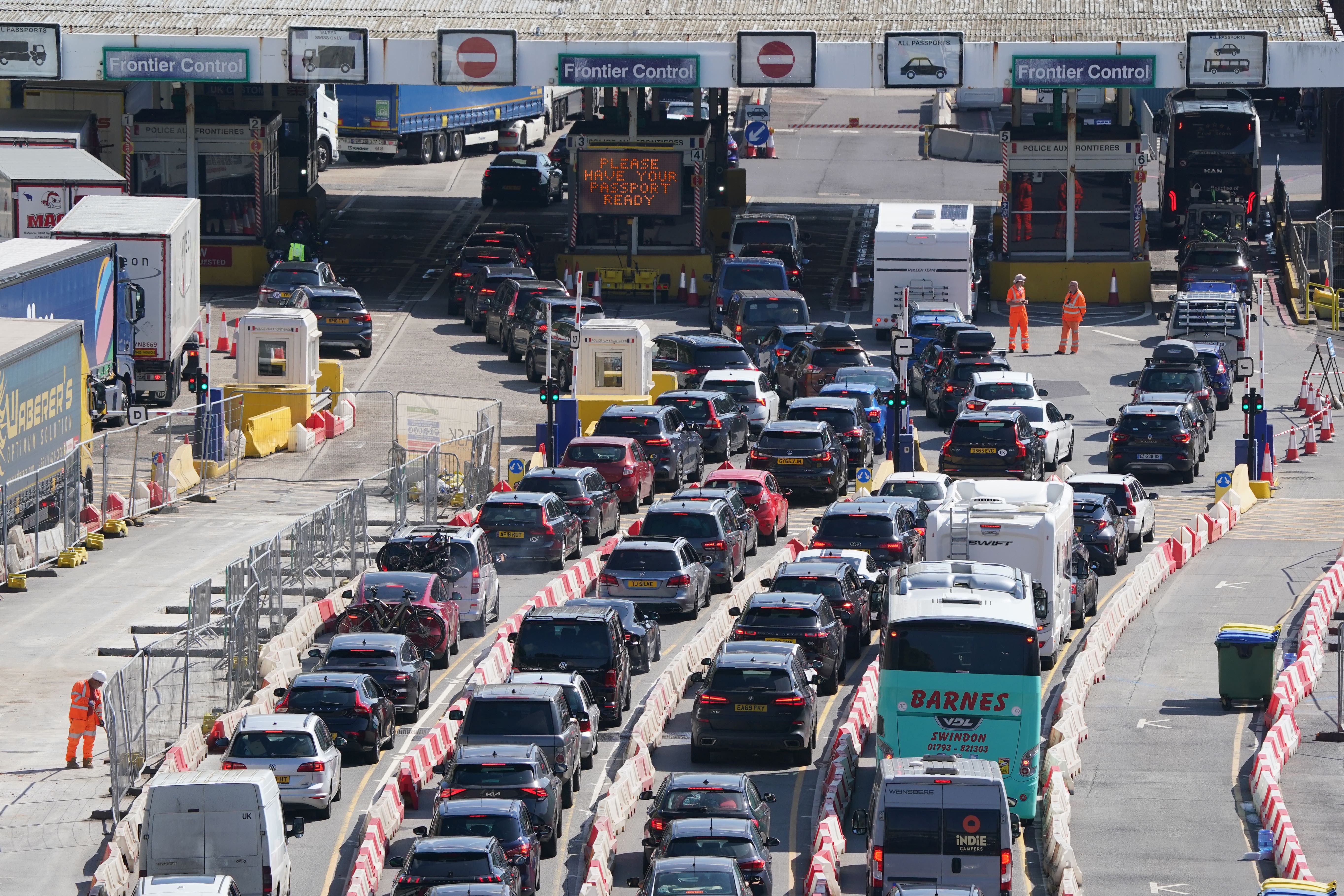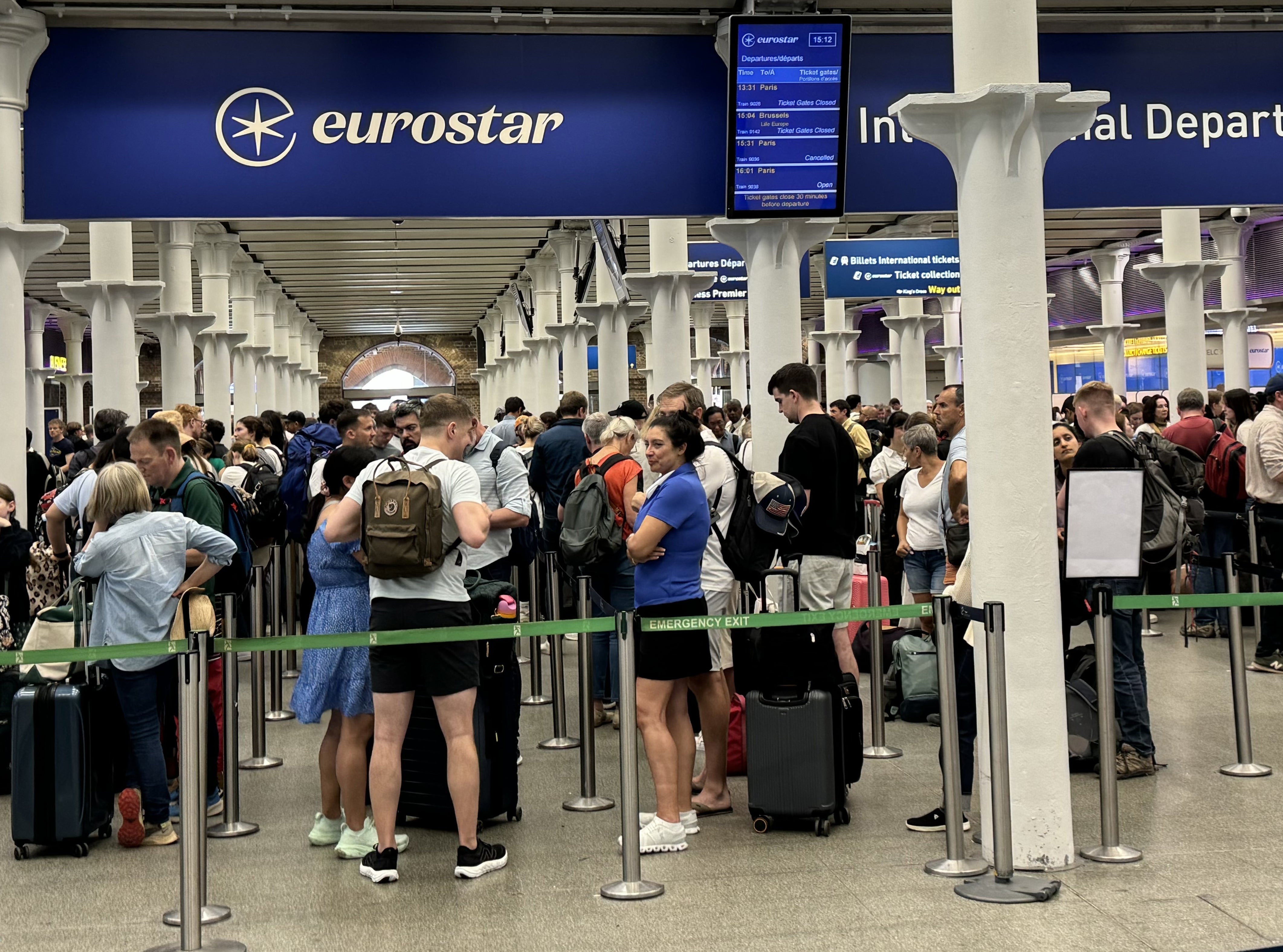Government forced to spend millions on UK ports ahead of tougher EU border checks
Concerns have been raised over the potential for long queues at these sites after the EU implements its Entry/Exit System (EES)

Your support helps us to tell the story
From reproductive rights to climate change to Big Tech, The Independent is on the ground when the story is developing. Whether it's investigating the financials of Elon Musk's pro-Trump PAC or producing our latest documentary, 'The A Word', which shines a light on the American women fighting for reproductive rights, we know how important it is to parse out the facts from the messaging.
At such a critical moment in US history, we need reporters on the ground. Your donation allows us to keep sending journalists to speak to both sides of the story.
The Independent is trusted by Americans across the entire political spectrum. And unlike many other quality news outlets, we choose not to lock Americans out of our reporting and analysis with paywalls. We believe quality journalism should be available to everyone, paid for by those who can afford it.
Your support makes all the difference.UK ports will receive £10.5 million of funding to prepare for enhanced European Union (EU) border checks, the Department for Transport (DfT) has announced.
The money will be used to support new facilities and technology at the Port of Dover, the Eurotunnel terminal in Folkestone and London’s St Pancras station for Eurostar services.
These are the three UK locations where French border checks are carried out before people embark on cross-Channel journeys.
Concerns have been raised over the potential for long queues at these sites after the EU implements its Entry/Exit System (EES), which is planned for November 10 after years of delays.
Travellers from non-EU countries such as the UK will need to have their fingerprints scanned and a photograph taken to register them on a database the first time they enter a member state, with the data stored for three years.
The DfT said the new funding will “reduce the risk of queuing and disruption”, with the three UK sites receiving £3.5 million each.
Migration minister Seema Malhotra, who visited the Port of Dover and Eurotunnel on Tuesday, said: “While EES checks will be a significant change to the EU border, we are working hard with the European Commission, member states and ports to ensure we are well prepared, and minimise any disruption for Brits travelling into Europe.

“This additional funding for ports will ensure they have the right technology and processes in place, so that EES registration can take place as smoothly as possible.”
Future of roads minister Lilian Greenwood said: “Nobody wants to see excessive queues at our ports, which is why we’re providing this funding to ensure our borders are as prepared as possible for the upcoming change – despite EES being an EU initiative.
“Since coming into Government, we have been reviewing plans and closely supporting ports to make sure they have the right processes in place so that EES registration can be smooth and queue times kept to a minimum.”
The Port of Dover will use the funding to expedite work on its project to infill a marina for use as a site for EES processing.
Chief operations officer Emma Ward said: “We are doing all that we can to be ready with the facilities that will be used by French border officials operating the new system.”
Eurostar chief safety and stations officer Simon Lejeune said: “With support from the Government, we have enhanced our facilities and upgraded our technology to meet the new requirements.
“Eurostar will be fully prepared and compliant by November, ensuring a smooth transition for all our passengers.”
Yann Leriche, chief executive of Eurotunnel owner Getlink, said: ““The Group has invested more than £70 million since the beginning of the process, designing and building a new dedicated EES zone on each terminal, making sure that when the new regulation is introduced people will travel through the Channel Tunnel just as easily as they do today.”
The funding is a combination of £9 million from the DfT and £1.5 million from the Home Office.